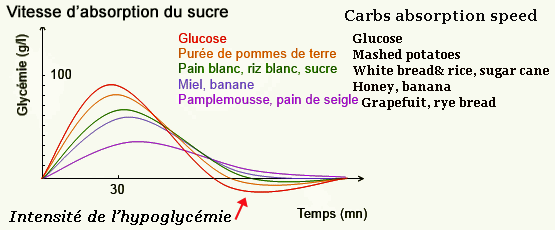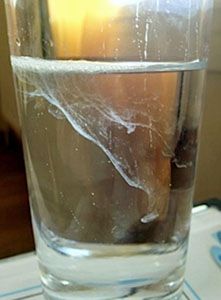@GreekDemiGod said in When is high LDL cholesterol not dangerous?:
please consider the case of familial hypercholesterolemia. it seems that very elevated levels of LDL (over 300-400) are indeed dangerous.
Hi
See the interview of Chris Masterjohn by Chris Kresser on the first link
Chris Masterjohn interviewed by Chris Kresser. Transcript of a video. Part I
https://chriskresser.com/the-healthy-skeptic-podcast-episode-11/
Comment1 :
No need to read if you don't suffer from gene defect or leptin insensibility (inducing overweight).
No need to read if you already master the fake news from the cholesterol hypothesis (Ancel key) and the lipid hypothesis (induced by corn and soy oils).
OxLDL is the problem not LDL.
Interesting however if you want to "realize" that your health-practitioner is going to measure lipoproteins in the blood, not the kind, the amount and the state of your cholesterol.
I cite: "So the numbers that you’re getting are the amount of cholesterol that is contained within each lipoprotein. But the lipoprotein itself is not cholesterol; it’s basically a carrier or transporter."
Excerpt 1:
what happens in the lipoprotein particle in order to cause atherosclerosis is the polyunsaturated fatty acids in the membrane of the lipoprotein particle are oxidized, and this basically means molecular degeneration, the molecules are falling apart. And once they oxidize they become toxic and in order to protect the blood vessels from these toxic degenerated lipids, the immune system comes along and forms an atherosclerotic plaque. That’s basically a protective mechanism but over time if you get accumulation of these toxic lipids you get inflammation, other sources of oxidative stress, these plaques fall apart causes a clot and this is what ultimately leads to a clot in the blood and then a heart attack.
Excerpt 2:
So once we realize that it’s about the degeneration of these lipids, then we can start to understand what are the metabolic factors that effect the degeneration of lipids, and how do we move beyond our understanding of the amount of cholesterol in the blood to how do we protect these lipoproteins from degeneration.
Excerpt 3:
So what we really wanna understand about fats is that saturated and monounsaturated fat are the ones that are fairly stable and therefore they’re protective, and polyunsaturated fats are the risky ones because they’re so delicate.
Excerpt 4:
LDL receptor activity
The main way the liver regulates blood cholesterol levels is by expressing the LDL receptor making bile acids, and excreting those bile acids into the intestines. (...) The LDL receptor is going to respond to the needs of the body as well as the needs of that cell. Now the needs of the body are primarily communicated by thyroid hormone. And above thyroid hormone we seem to have leptin. (...) I know there’s things that control leptin, but in terms of communicating this abundance signal leptin is like the CEO of a company or the commander in chief of the armed forces. Thyroid hormone is like a general, so thyroid hormone is under the hierarchy of leptin but it’s the main signal that’s communicating this fact that times are abundant, it’s time to ramp up our energy, our virility, our fertility, time to reproduce and do all of these great things.
(...)
[When there is a problem], that signal is not getting where it needs to go there’s miscommunication in the body. I think that’s a major role in LDL receptor activity. (...)
Excerpt 5:
About hypercholesterolemia
There’s no totally safe, totally effective way to normalize LDL receptor activity in these folks. So what we can do is try to improve the things that we can most impact, and that’s the oxidation of the LDL particle to some degree, but to an even larger degree it’s preventing the inflammation and pro-clotting environment that comes downstream from the formation of the atherosclerotic legion. (...)
When I say antioxidants I do not mean something specific like blueberries. I mean the wide spectrum of antioxidants that are found in fresh, whole animal and plant foods. (...)
Source:
Chris Masterjohn on cholesterol, as possibly cause of heart disease, and the degenerative lipid hypothesis. 2015
Google search with:
Chris Masterjohn on cholesterol and interviewed by Chris Kresser and Transcript of a video. Part I

